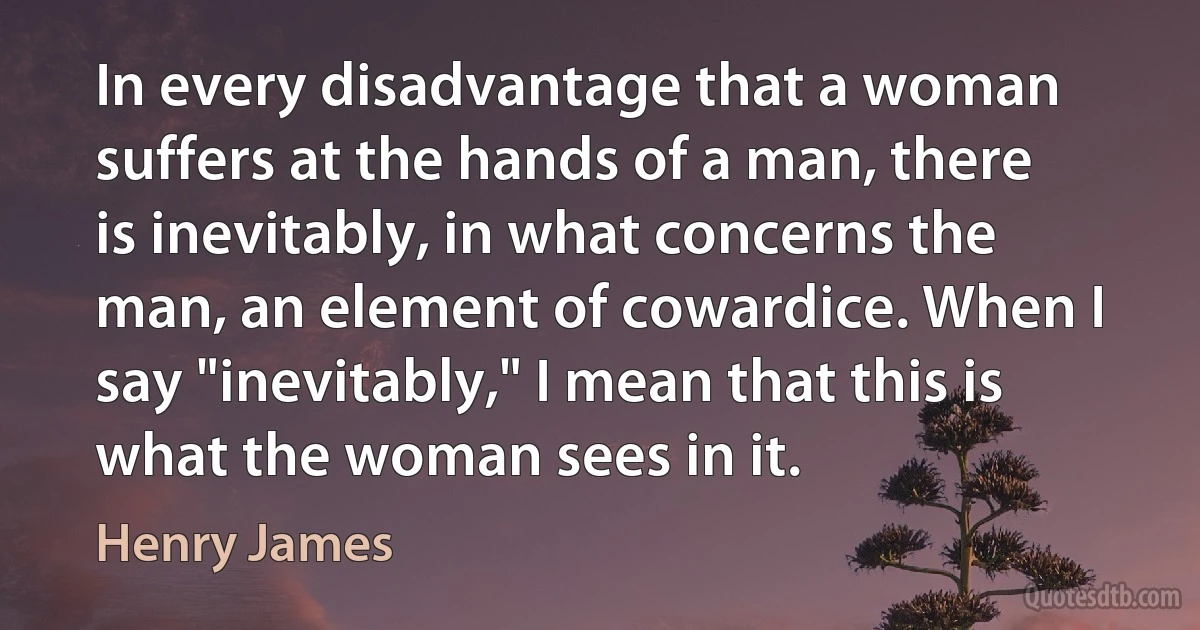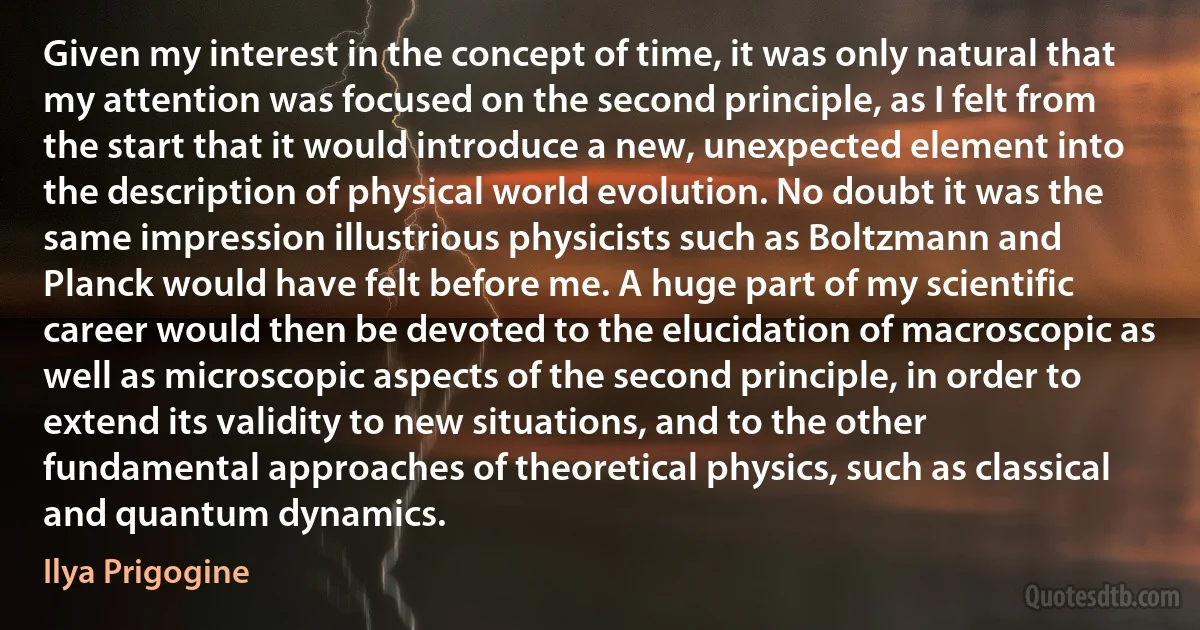Element Quotes - page 13
Indeed, over the years I have had many a good laugh at the pompous moralism and blatant dishonesty of India's so-called secularists. Their specialty is to justify double standards, e. g. why mentioning murdered Kashmiri Pandits is "communal hate-mongering” while the endless litany about murdered Gujarati Muslims is "secular consciousness-raising”. Sometimes they merely stonewall inconvenient information, such as when they tried to deny and suppress the historical data about the forcible replacement of a Rama temple in Ayodhya by a mosque: given the strength of the evidence, all they could do was to drown out any serious debate with screams and swearwords. But often they do bring out their specific talents at sophistry, such as when they argue that a Common Civil Code, a defining element of all secular states, is a Hindu communalist notion, while the preservation of the divinely-revealed Shari'a for the Muslims is secular. That's when they are at their best.

Koenraad Elst
If a society insists that warfare is the major occupation for the male sex, it is therefore insisting that all male children display bravery and pugnacity. Even if the insistence upon the differential bravery of men and women is not made articulate, the difference in occupation makes this point implicitly. When, however, a society goes further and defines men as brave and women as timorous, when men are forbidden to show fear and women are indulged in the most flagrant display of fear, a more explicit element enters in. Originally two variations of human temperament, a hatred of fear or willingness to display fear, they have been socially translated into inalienable aspects of the personalities of the two sexes. And to that defined sex-personality every child will be educated, if a boy, to suppress fear, if a girl, to show it.

Margaret Mead
The object of a ceremony is not to be beautiful, though that is a valuable element. The object of a ceremony is to be ceremonious. Ritual is a need of the human soul - nay, it is rather a need of the human body, like exercise. A man does not take off his hat to a lady because he looks nicer without it; the instance of bald men would be alone sufficient to upset such an explanation. He does it because you must positively do something when you meet a lady, or your whole civilisation goes to pieces; and taking off your hat is easier than taking off your necktie or lying face downwards on the pavement.

G. K. Chesterton
What Elizabethan playwrights learned from the Greek classics was not theories of insanity, but dramatic practice - that is, madness is a dandy theatrical element. It focuses the audience's attention and increases suspense, since you never know what a mad person may get up to next; and Shakespeare himself makes use of it in many forms. In King Lear, there's a scene in which one man pretending to be mad, another who has really gone mad, and a third who has probably always been a little addled, are brought together for purposes of comparison, irony, pathos, and tour de force acting. In Hamlet, there are two variations - Hamlet himself, who assumes madness, and Ophelia, who really does go winsomely bonkers. In MacBeth, it's Lady MacBeth who snaps.

Margaret Atwood
Islam must take the initiative of recognizing motherhood as a social function. Harems must be abolished. No one has the right to refer to Islam as a reason to keep women disenfranchised: abuse of this kind must be brought to an end. Such attitudes do not represent a Western feminism, which has displayed a tendency to impose the measures, whims and mastery of a depraved element among the female sex. Neither is this equality in the European sense. It is an underlining of the equal value of men and women, together with the underlining of the differences between them, which should be preserved.

Alija Izetbegović
The Islamic order can only be established in countries where Muslims represent the majority of the population. If this is not the case, the Islamic order is reduced to mere power (as the other element - an Islamic society - is missing) and may turn to violence. The non-Muslim minorities within an Islamic state, on condition that they are loyal, enjoy religious freedom and all protection.

Alija Izetbegović
But it has been necessary, for the benefit of the social order, to convert religion into a kind of police system, and hence hell. Oriental or Greek Christianity is predominantly eschatological, Protestantism predominantly ethical, and Catholicism is a compromise between the two, although with the eschatological element predominating.

Miguel de Unamuno
The cult of the Virgin, Mariolatry, which by the gradual elevation of the divine element in the Virgin has led almost to her deification, answers merely to the feeling that God should be a perfect man, that God should include in his nature the feminine element. The progressive exaltation of the Virgin Mary, the work of Catholic piety, having its beginning in the expression Mother of God, ...has culminated in attributing to her the status of co-redeemer and in the dogmatic declaration of her conception without the stain of original sin. Hence she now occupies a position between Humanity and Divinity and nearer Divinity than Humanity. And it has been surmised that in course of time she may perhaps even come to be regarded as yet another personal manifestation of the Godhead.

Miguel de Unamuno
In reality the cycles we have the occasion to observe are generally not damped. How can the maintenance of the swings be explained? Have theses dynamic laws deduced from theory and showing damped oscillations no value in explaining the real phenomena, or in what respect do the dynamic laws need to be completed in order to explain the real happenings? They (dynamic laws) only form one element of the explanation: they solve the propagation problem. But the impulse problem remains.

Ragnar Frisch
To the cosmic corpuscles we should find it natural to attribute an individual radius of action as limited as their dimensions. We find, on the contrary, that each of them can only be defined by virtue of its influence on all around it. Whatever space we suppose it to be in, each cosmic element radiates in it and entirely fills it. However narrowly the heart of an atom may be circumscribed, its realm is co-extensive, at least potentially, with that of every other atom. This strange property we will come across again, even in the human molecule.

Pierre Teilhard de Chardin
If the listener does eventually come to the point where he makes the ultimate performance by splicing tapes from other musicians' recordings, he will eventually become just as bored with it as with other recordings, for it will still always be the same. Look, for instance, at electronic music. The boys are already becoming bored with what they do because they put it irrevocably on tape. The best indication of this is that more and more they are mixing the live performance element with their tapes.

Aaron Copland
Nadia Boulanger was quite aware that as a composition teacher she labored under two further disadvantages: she was not herself a regularly practicing composer and in so far as she composed at all she must of necessity be listed in that unenviable category of the woman composer. Everyone knows that the high achievement of women musicians as vocalists and instrumentalists has no counterpart in the field of musical composition. This historically poor showing has puzzled more than one observer. ... Is it possible that there is a mysterious element in the nature of musical creativity that runs counter to the nature of the feminine mind? ... The future may very well have a different tale to tell; for the present, however, no woman's name will be found on the list of world-famous composers.

Aaron Copland
One thing seems at any rate certain, that the spiritual motive will be in the future of India, as in her past, the real originative and dominating strain. By spirituality we do not mean a remote metaphysical mind or the tendency to dream rather than to act. That was not the great India of old in her splendid days of vigour, - whatever certain European critics or interpreters of her culture may say, - and it will not be the India of the future. Metaphysical thinking will always no doubt be a strong element in her mentality, and it is to be hoped that she will never lose her great, her sovereign powers in that direction...

Sri Aurobindo



